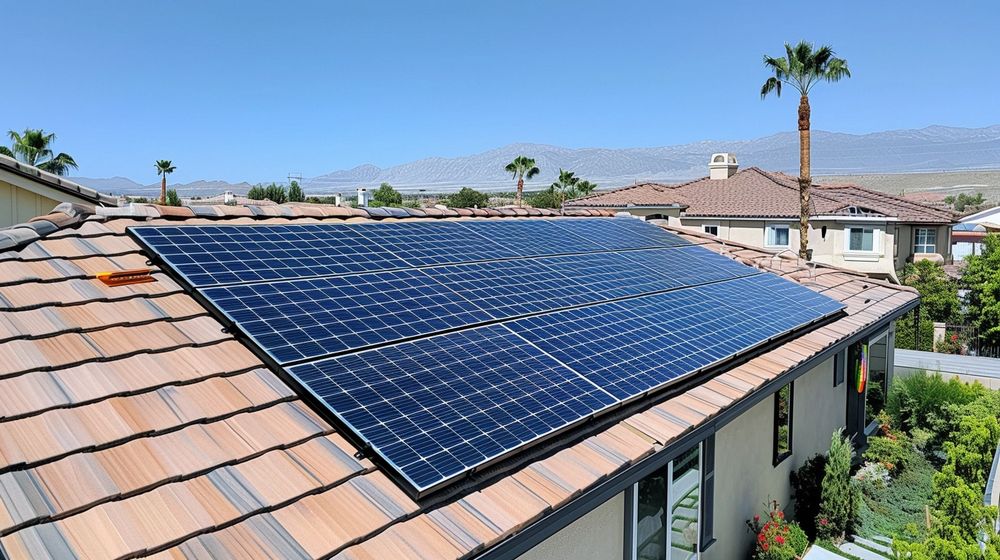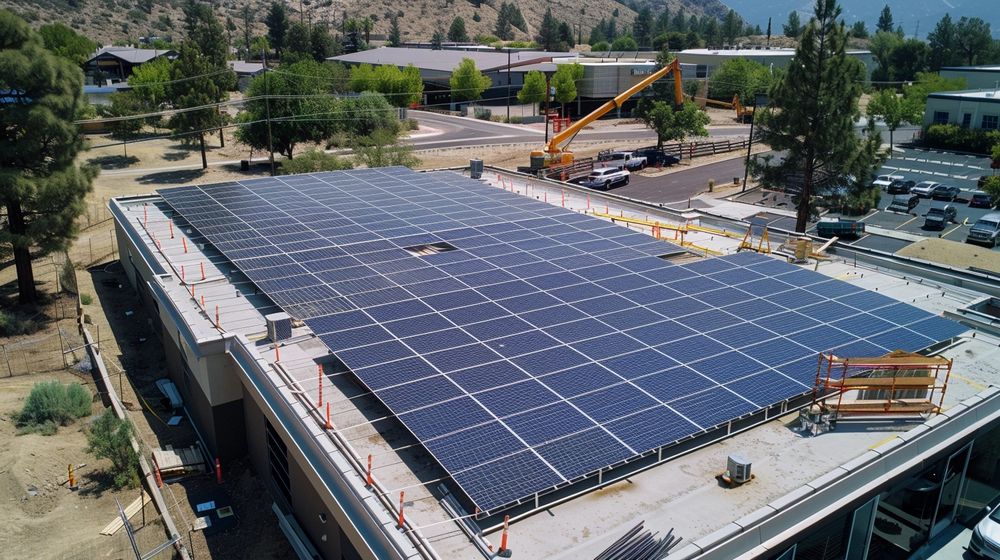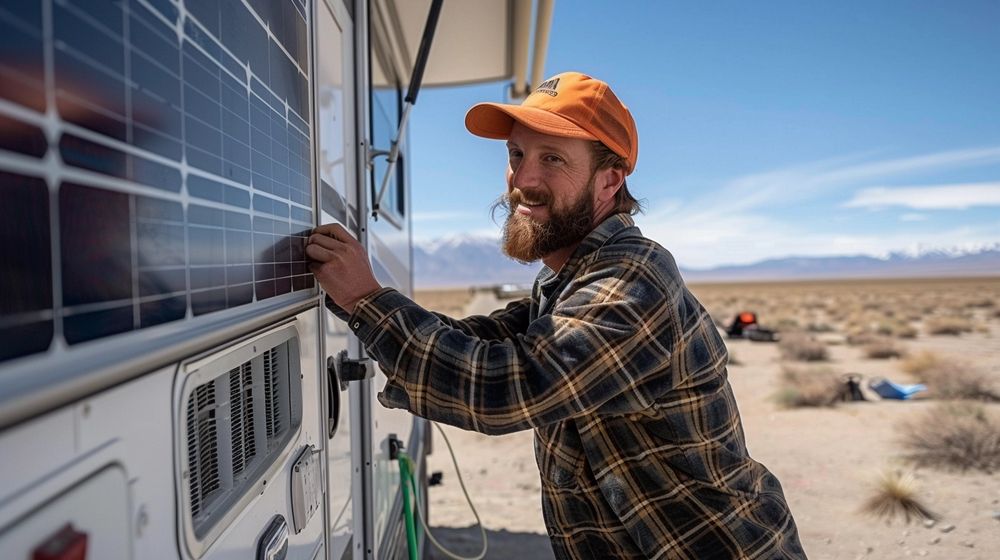
Solar panel kits are all-in-one packages designed to provide you with everything you need to harness the power of the sun. These kits typically include solar panels, a charge controller, wiring, and sometimes a battery and inverter. They come in various sizes and capacities, making them suitable for a wide range of applications, from powering a small outdoor lighting system to providing electricity for your entire home. Solar panel kits are designed to be user-friendly, with the aim of making solar power accessible to everyone, regardless of technical knowledge or experience.
Installing a solar panel kit in your home or business comes with a myriad of benefits. Here are a few key advantages:
Whether you’re looking to power a remote cabin, reduce your carbon footprint, or save on energy costs, solar panel kits offer a practical and effective solution. In the following sections, we’ll explore the different types of kits available and how to choose the right one for your needs.
When it comes to powering your home with solar energy, there are several types of solar panel kits tailored to meet various energy needs and installation scenarios. These kits are designed to offer an efficient and scalable way to reduce utility bills and increase energy independence.
A typical solar panel kit for home use includes panels, an inverter, mounting hardware, and a solar charge controller. These kits can range from small setups designed for partial power supplementation to full-scale systems capable of powering an entire home. Selecting the right size depends on your energy consumption and the amount of sunlight your location receives.

Beyond the traditional home solar kits, there are specialty solar kits designed for specific applications. These kits are tailored to meet the unique needs of different environments and use cases, ensuring optimal performance and durability.
Each type of solar panel kit offers unique features and benefits, making it important to consider your specific needs and circumstances when selecting a kit. Whether for home use, a specialty project, or something in between, the right solar panel kit can provide a sustainable and cost-effective energy solution.
Marine solar panel kits are designed to withstand the harsh conditions at sea, including saltwater corrosion and strong winds. These kits typically include marine-grade panels, waterproof charge controllers, and mounting hardware that can endure the rigors of maritime environments. They’re ideal for powering onboard electronics, lights, and small appliances, ensuring that marine enthusiasts have a reliable energy source away from shore.

A solar power toy kit is a fantastic way to introduce children and hobbyists to the principles of renewable energy. These kits often include small solar panels, motors, and other components to build solar-powered toys or models. Not only do they provide a hands-on educational experience, but they also foster creativity and a deeper understanding of how solar energy can be harnessed in everyday life.

For those needing flexibility and portability, small-scale solar kits are the perfect solution. These kits range in power output and size, making them suitable for a variety of uses, from camping and outdoor activities to backup power for small appliances.

100 to 500 watt solar panel kits are ideal for those just starting with solar or needing a small, portable power source. These kits can power essential devices such as smartphones, tablets, small appliances, and LED lights, making them perfect for outdoor activities, emergency power, or supplemental energy for home use.
Kits in the 600 to 1000 watt range offer more substantial power, capable of supporting larger devices, including TVs, refrigerators, and pumps. They are well-suited for off-grid cabins, RVs, and boats, providing a reliable power source for longer periods away from traditional energy sources.
At the high end, 1500 to 10000 watt solar panel kits are designed for complete off-grid living, capable of powering an entire home, large RV, or workshop. These comprehensive systems often include multiple panels, large-capacity batteries, advanced inverters, and detailed monitoring systems. They’re best for those committed to a sustainable lifestyle or requiring significant, reliable power in remote locations.
Choosing the right solar panel kit size depends on your specific power needs, space for installation, and budget. From powering a small set of lights to running an entire household, there’s a solar kit available to meet every energy requirement.
Choosing the right solar panel kit involves several key factors to ensure that you meet your energy needs efficiently and cost-effectively. Here are the most crucial considerations:
Choosing a solar panel kit based on wattage involves understanding your energy consumption. Here’s a simple guide to help you decide:
Selecting the right solar panel kit based on wattage ensures that your energy needs are met effectively, maximizing your investment and the benefits of solar power. Always consider the quality and warranty of the kit components to ensure long-term reliability and performance.

Finding a cheap solar kit can be a great way to start with solar power without breaking the bank. These kits often cater to smaller projects or those new to solar energy, providing a cost-effective solution for reducing energy bills and carbon footprint. While cheaper kits may have lower power outputs or fewer features, they can still offer significant benefits for applications like outdoor lighting, small electronics, or as educational tools. When looking for affordable options, consider kits that balance price with quality and reliability to ensure a good investment.
Purchasing a solar system kit has never been easier, with multiple options available both online and in physical stores. Here are some popular places to start your search:
Online Retailers: Websites like Amazon, eBay, and specialized solar energy stores offer a wide range of solar panel kits. These platforms provide detailed product descriptions, customer reviews, and comparisons to help you make an informed decision.
Discount Stores and Auction Sites: For those looking for the cheapest solar panel kit, exploring discount stores and auction sites can uncover deals on overstocked or open-box items. Be sure to verify the condition and warranty of these products before purchasing.
Local Solar Energy Suppliers: Purchasing a solar kit for sale through a local supplier can offer advantages like expert advice, installation services, and after-sales support. They might also inform you about local incentives or rebates you can benefit from.
Regardless of where you decide to buy your solar panel kit, it’s important to research and compare options. Look for kits that offer a good balance of cost, quality, and the necessary components for your specific needs. Remember, investing in solar energy can provide long-term savings, making it worth considering higher quality options that may offer better efficiency and durability.
Additionally, exploring financing options, subsidies, and incentives available in your region can make solar power more affordable. Many governments and utilities offer programs to encourage the adoption of renewable energy, potentially reducing the upfront costs of solar panel kits.
Many solar panel kits come equipped with all the necessary components for installation, including panels, inverters, mounting hardware, and cables. These solar panel installation kits are designed to simplify the process, making it possible for individuals with basic DIY skills to set up their systems. However, it’s crucial to follow the manufacturer’s instructions carefully and adhere to local building codes and regulations. For larger or more complex systems, or if you’re not comfortable working with electrical systems, hiring a professional installer may be the best option.

For those interested in a DIY installation, here are some tips to ensure a smooth process:
Maintenance of your solar panel kit is crucial for optimal performance and longevity. Fortunately, solar systems are relatively low maintenance. Here are some basic tips for keeping your system in top shape:
Maintaining your solar panel kit doesn’t require much, but regular check-ups and cleaning can significantly impact its efficiency and lifespan. By taking care of your solar system, you’ll continue to enjoy the benefits of renewable energy for years to come.
The decision to switch to solar energy is not just a personal or financial one; it carries significant environmental implications. By choosing solar power, you are directly contributing to the reduction of greenhouse gas emissions and the dependence on fossil fuels. This transition supports a cleaner, more sustainable future while combating climate change. Economically, solar panels can offer substantial savings on electricity bills over time, despite the initial investment. The increasing efficiency and decreasing cost of solar technology make it an ever-more viable option for individuals and communities seeking energy independence and environmental stewardship.
Ready to make the switch to solar? Here are the next steps to take:
Making the switch to solar power is a significant step toward energy independence and environmental responsibility. With careful planning and consideration, you can select a solar panel kit that meets your needs, supports the planet, and provides economic benefits for years to come.